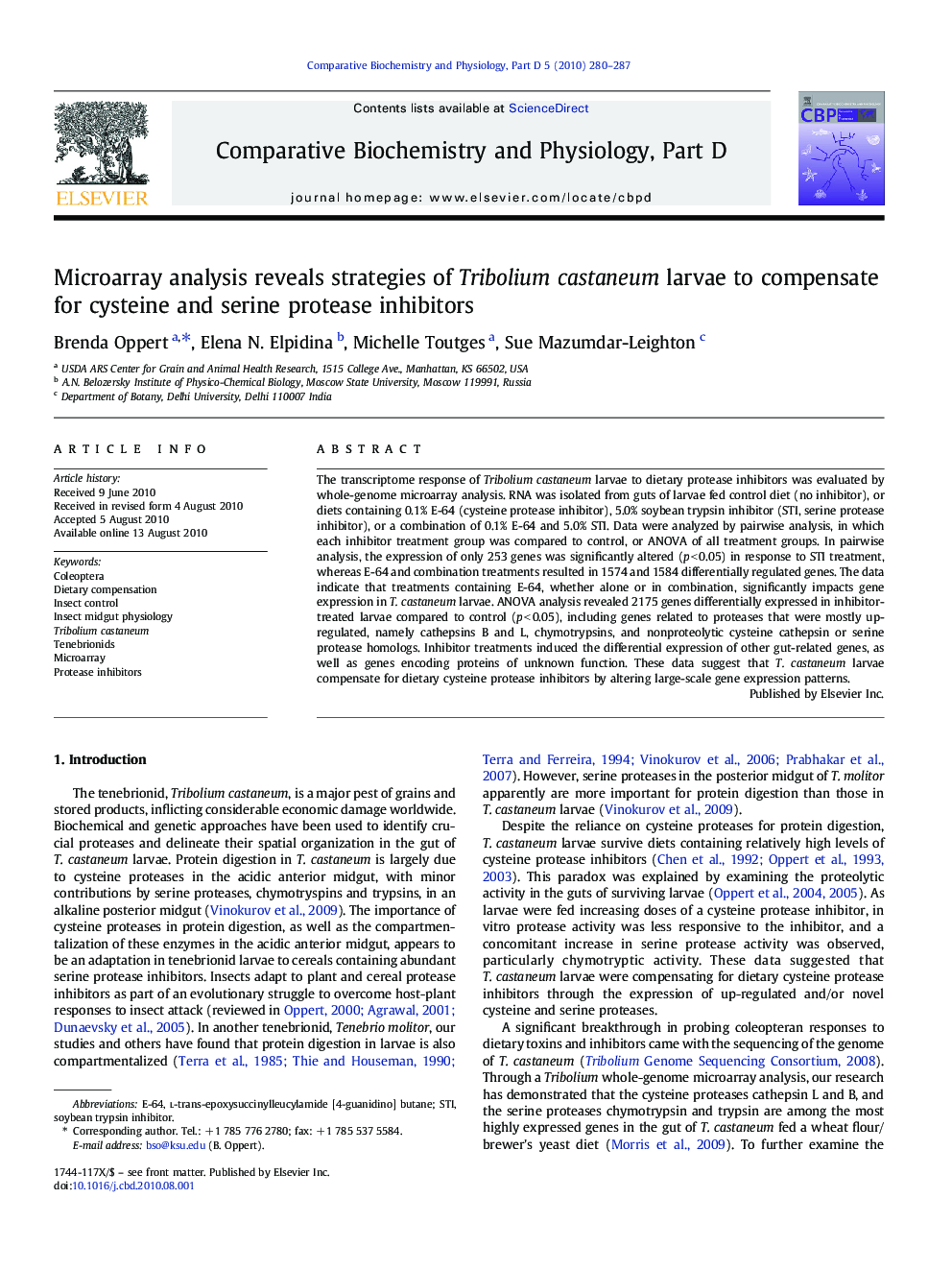| Article ID | Journal | Published Year | Pages | File Type |
|---|---|---|---|---|
| 1978806 | Comparative Biochemistry and Physiology Part D: Genomics and Proteomics | 2010 | 8 Pages |
The transcriptome response of Tribolium castaneum larvae to dietary protease inhibitors was evaluated by whole-genome microarray analysis. RNA was isolated from guts of larvae fed control diet (no inhibitor), or diets containing 0.1% E-64 (cysteine protease inhibitor), 5.0% soybean trypsin inhibitor (STI, serine protease inhibitor), or a combination of 0.1% E-64 and 5.0% STI. Data were analyzed by pairwise analysis, in which each inhibitor treatment group was compared to control, or ANOVA of all treatment groups. In pairwise analysis, the expression of only 253 genes was significantly altered (p < 0.05) in response to STI treatment, whereas E-64 and combination treatments resulted in 1574 and 1584 differentially regulated genes. The data indicate that treatments containing E-64, whether alone or in combination, significantly impacts gene expression in T. castaneum larvae. ANOVA analysis revealed 2175 genes differentially expressed in inhibitor-treated larvae compared to control (p < 0.05), including genes related to proteases that were mostly up-regulated, namely cathepsins B and L, chymotrypsins, and nonproteolytic cysteine cathepsin or serine protease homologs. Inhibitor treatments induced the differential expression of other gut-related genes, as well as genes encoding proteins of unknown function. These data suggest that T. castaneum larvae compensate for dietary cysteine protease inhibitors by altering large-scale gene expression patterns.
